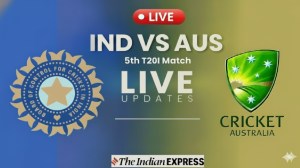‘Lokniti as distinct from rajniti’
It was not the ugliness of politics that repelled me, but the attraction of the new politics of sarvodaya that drew me. For, as I have tried...

It was not the ugliness of politics that repelled me, but the attraction of the new politics of sarvodaya that drew me. For, as I have tried to show above, sarvodaya also has its politics. But, as I have tried to show, sarvodaya also has its politics. But it is politics of a different kind: “politics of the people”, as I have called it, as distinct from the politics of party and power, lokniti as distinct from rajniti. The politics of sarvodaya can have no party and no concern with power. Rather, its aim will be to see that all centres of power are abolished. The more this new politics grows the more the old politics shrinks. A real withering away of the State! I should add that there can be no question of any hostility between rajniti and lokniti, nor can the two be kept apart as unmixable castes. Lokniti is but the child of rajniti. Between the two there must be constant contact and co-operation. Democratic rajniti cannot possibly ever resist the idea that the people should practise self-government as far as possible. All democratic parties should, by definition, be prepared, nay, anxious to hand over power to the people as soon as possible, in the same manner as every good father is anxious to hand over to his sons when they are of age. If pressure of work permits me, I shall try some time later to place before the country my humble suggestions in regard to the evolution of our polity from rajniti to lokniti.
I should also add that though all my energies would be bent towards developing lokniti, I shall not shut my eyes to what happens in the sphere of rajniti. For good or ill, rajniti does to some extent influence the lives of the people. It shall be my concern from the outside to see that that influence is as salutary as possible. I am aware of the risks involved in that, the risk, for instance, of being misunderstood and charged with ‘playing politics’. I would regret very much if anything like that happened. But perhaps one cannot always avoid misunderstandings in public life. I wish, however, to assure everybody that for my part I cannot but view every issue from a detached non-partisan point. If my intervention at any time causes annoyance to anyone, the misfortune will be entirely mine.
Excerpted from ‘Power to the People: The Political Thought of M.K. Gandhi, M.N. Roy and Jayaprakash Narayan’, edited by R.M. Pal and Meera Verma (Gyan Publishing House, 2007)



- 01
- 02
- 03
- 04
- 05




























